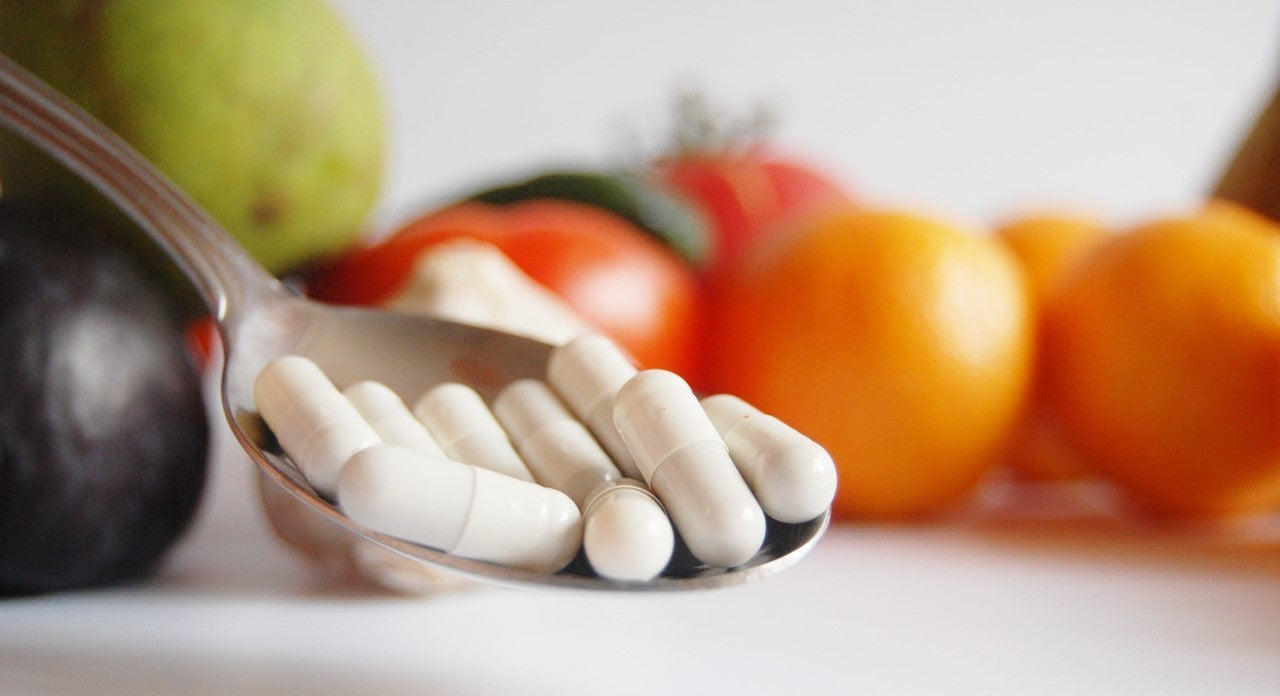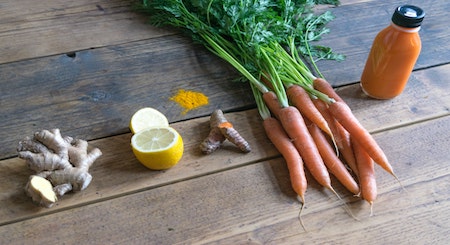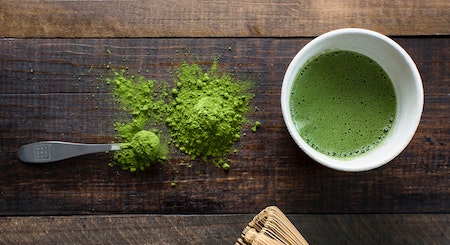
Bien-être 03/08/2020
Comment choisir son complément alimentaire ?
Ils sont devenus incontournables : les compléments alimentaires. Pour rester en bonne santé, le corps humain a besoin quotidiennement d’un apport en différents nutriments afin que chaque organe fonctionne de façon optimale. Aujourd’hui, il existe sur le marché un grand choix de compléments alimentaires, mais tous ne s’adressent pas aux mêmes pathologies, n’ont pas la même efficacité ni la même charte de qualité. Bien choisir son complément alimentaire nécessite de connaître ses besoins, les nutriments qui le composent et leurs bienfaits.
Parce que chaque personne est unique et a des besoins différents, il est important de se poser les bonnes questions avant de choisir son complément alimentaire. Quel est votre besoin réel ? Souffrez-vous d’une pathologie spécifique ? Ou souhaitez-vous plutôt soutenir votre corps ? Êtes-vous dans une période de stress ? Voulez-vous améliorer vos performances sportives ou intellectuelles ?
Quel complément alimentaire choisir et pour quels besoins ?
Il existe aujourd’hui différents types de compléments alimentaires : vitamines, minéraux, oligo-éléments, probiotiques, acides gras, acides aminés, plantes, etc. Chacun d’eux a des effets ciblés. C’est notamment le cas des antioxydants et des superaliments. Lumière sur ces deux types de compléments alimentaires
Les compléments alimentaires « antioxydants »
En vieillissant, les mécanismes de défense cellulaire deviennent moins efficaces face aux radicaux libres. La théorie du vieillissement par le stress oxydatif a été formulée en 1954 par le Pr. Denham Harman (Université du Nebraska). Elle stipule que le vieillissement – et les maladies qui en découlent – sont dus aux radicaux libres, responsables du stress oxydatif. Selon lui, en neutralisant les radicaux libres il serait possible d’allonger la vie en bonne santé.
L’organisme est équipé d’antioxydants capables de protéger des radicaux libres. Il puise également dans l’alimentation des molécules dotées de ce pouvoir. Cependant, le corps peut subir des déficits en antioxydants à cause, entre autres, des UV, pollution, stress, mauvaise hygiène alimentaires, tabac, alcool, etc. Il est alors judicieux de le soutenir en lui apportant les nutriments nécessaires à son bon fonctionnement.
Les extraits naturels de plantes ou de fruits contiennent des principes actifs permettant à l’organisme de faire face aux agressions des radicaux libres, en protégeant nos structures cellulaires. Polyphénols, caroténoïdes, curcuminoïdes, catéchines, acétogénines, sont autant d’antioxydants dont on connaît aujourd’hui tous les bienfaits nutritionnels.
Certains antioxydants ont la capacité de cibler un organe en particulier (cœur, foie, cerveau, peau, etc.), d’autres stimulent notre système immunitaire, donnent de l’énergie, favorisent le sommeil, détoxifient. Il est donc important de connaître votre ou vos besoins en matière de santé avant de choisir un complément alimentaire.
Les compléments alimentaires « superaliments »
Les superaliments existent depuis des siècles. Aujourd’hui, ils sont plus populaires que jamais. Baies, graines, algues, fruits, légumes, les superaliments offrent plus de 12 propriétés bonnes pour la santé, alors que la majorité des aliments sains n’en contiennent que 2 ou 3. Ces aliments sont reconnus pour leur remarquable richesse nutritionnelle : vitamines, minéraux, enzymes, acides aminés, acides gras essentiels, antioxydants. Aujourd’hui, notre alimentation ne suffit plus toujours à couvrir nos besoins nutritionnels. Consommer un superaliment permet ainsi de booster nos apports en micronutriments.
Pourvus de tous les éléments indispensables à la santé et au bien-être, les superaliments ont des effets bénéfiques sur la santé physique mais aussi mentale, en augmentant les capacités de régénération et de récupération de l’organisme et en renforçant le système immunitaire.
Découverte dans les années 1970 et étudiée par les chercheurs depuis 1995, l’algue Klamath est un superaliment reconnu aujourd’hui comme le plus complet (115 nutriments) et à haute biodisponibilité, c’est-à-dire facilement assimilable par l’organisme. Sa richesse nutritive en fait un complément alimentaire pour les personnes âgées, les sportifs, les personnes en convalescence, en période d’examen, ou les végétariens manquant souvent de protéines et de vitamine B12.

Choisir un complément alimentaire de qualité
Vous avez ciblé le complément alimentaire qui répond à vos besoins ? Il s’agit maintenant de miser sur la qualité du produit.
La composition
Un complément alimentaire n’est pas toujours synonyme de naturel. Soyez donc attentif aux principes actifs qui le composent : sont-ils naturels ? De synthèse ? Quant au bio, s’il est préférable de privilégier ce label, certains compléments alimentaires ne peuvent pas obtenir la certification bio. Assurez-vous alors qu’ils sont sans résidus de pesticides ou autres produits de synthèse. Vérifiez également si votre complément alimentaire contient des allergènes (gluten, lactose, …), des additifs, des conservateurs ou tout autre composant indésirable. N’oubliez pas que l’ajout d’excipients diminue la proportion d’ingrédients actifs, ce qui péjore la qualité du produit.
La concentration en principes actifs
Un principe actif est la substance qui provoque un changement dans le fonctionnement du corps, soit l’ingrédient qui fait le travail. La concentration en principes actifs d’un produit est donc importante car elle détermine son efficacité. Méfiez-vous de l’absence d’indication de la teneur en principe actif d’un complément alimentaire, la concentration réelle en actifs est certainement faible.
La biodisponibilité
Un nutriment peut être absorbé complètement et n’avoir qu’une faible biodisponibilité. La biodisponibilité correspond à la faculté des nutriments à être libérés au cours de la digestion, absorbés correctement puis utilisés efficacement au niveau métabolique. La forme chimique d’un actif détermine sa biodisponibilité et son activité. Elle peut donc être travaillée pour améliorer la solubilité dans l’eau ou dans les graisses, selon l’action visée. L’assimilation des actifs peut également être augmentée par divers processus, notamment la combinaison avec d’autres composés agissant en synergie. Il est donc important d’être attentif à la forme de présentation des principes actifs lorsqu’on choisit un complément alimentaire.
Les contre-indications
Consommer des compléments alimentaires naturels ne vous dispensent pas de consulter les contre-indications. Certains peuvent en effet interférer avec la prise de médicaments ou être inadaptés avec une pathologie dont vous souffririez. Soyez également attentif à la dose journalière recommandée et veillez à ne pas la dépasser.


